In esclusiva su Parkett, Moullinex racconta la sua esperienza artistica e del suo nuovo progetto per Crosstown Rebels, “A Fistful of Stars”.
Moullinex, al secolo Luis Clara Gomes è un DJ, musicista e produttore musicale originario di Lisbona. I suoi suoni sono caratterizzati dall’unione di contrasti apparentemente distanti: gioia e dolore, luce e buio, introspezione e apertura al movimento.
In occasione della release del suo nuovo progetto per Crosstown Rebels intitolato “A Fistful of Stars” e acquistabile tramite questo link, abbiamo avuto il piacere di parlare con Luis e conoscere meglio la visione della sua musica a partire dai suoi primi progetti passando per l’organizzazione di Discodrama fino alla release dell’ultimo disco ispirato dall’astronomia come mezzo per sognare nello spazio e nel tempo.
Ciao Moullinex, benvenuto su Parkett! Come stai?
Ciao ragazzi, sto bene! E’ un piacere essere qui con voi oggi.
Partiamo dalle origini. Cosa ti ha avvicinato al mondo della musica e qual è il tuo primo ricordo associato?
Il mio primo ricordo musicale risale a quando ero piccolo: i miei genitori frequentavano un’associazione culturale in una città vicino a quella dove sono nato e ci andavamo ogni fine settimana. Ricordo che assistevamo a performance, concerti e prove. Non ho avuto un trigger specifico visto che la musica è sempre stata attorno a me ed essendo stato sempre curioso, il mio approccio con la musica è stato abbastanza naturale. Non sono mai stato molto bravo con gli strumenti musicali ma in qualche maniera il computer è stato il miglior mezzo per creare qualcosa.
Sei originario di Lisbona. L’eredità culturale portoghese è ampia e, al tempo stesso profonda. La prima cosa che ci viene in mente è il “Fado”. Quanto “Fado” c’è nella tua musica?
Ascolto prevalentemente Fado strumentale o “impuro”, nel senso che è mischiato con musica proveniente da altre culture. Nelle sue origini il Fado è il risultato di diverse influenze, ma nel XX secolo è stato “normato” da una serie di regole sotto il regime fascista che lo ha costretto attorno ad una serie di regole per controllarlo.
Solo in tempi recenti una generazione di nuovi artisti sta rinnovano il Fado. Parlo di artisti quali Fado Bicha, Conan Osiris, Gisela João (ed il suo remix di Xinobi) e molti altri. Non mi verrebbe da dire che il Fado è presente in modo diretto nelle mie produzioni, ma la sua melancolia, la luce e l’oscurità, la gioia e il dolore sì.
La tua musica è il perfetto bilanciamento tra una parte più “dance” ed una più introspettiva. E’ complicato bilanciare queste due (apparentemente) caratteristiche contrapposte?
Grazie, è un bel complimento! Penso che la musica dance sia il mezzo perfetto sia per l’introspezione che per la comunicazione: è anche un gran mezzo di uguaglianza sociale ed un bel mezzo di comunicazione senza l’uso di parole. Adoro l’immediatezza del pattern di percussioni che spesso è impossibile da sfuggire e puoi solo continuare a ballare e continuare così il tuo viaggio.
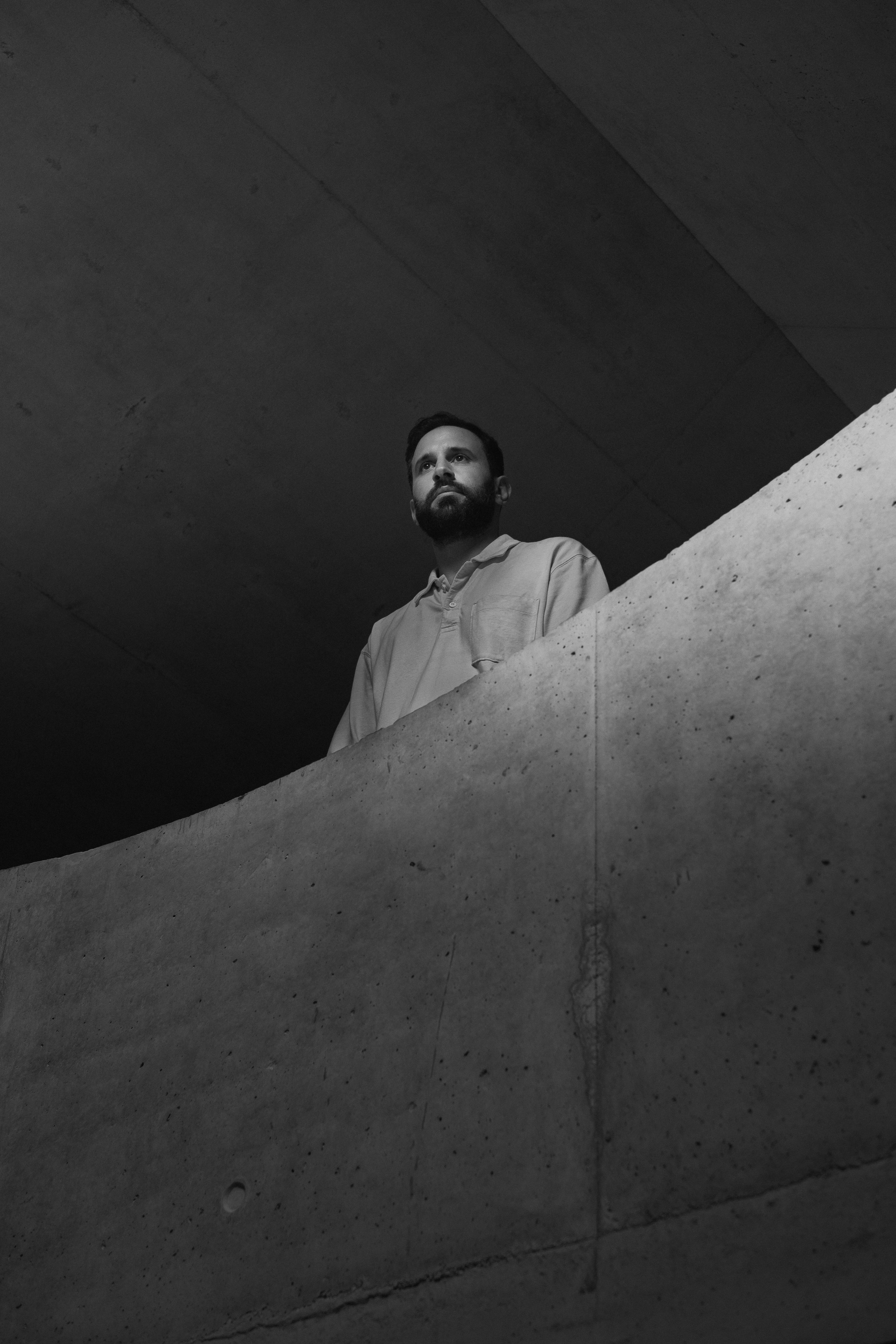
Parliamo un pò della tua collaborazione con Xinobi, altro artista di origini portoghesi. Qual è il suo contributo nella vostra avventura musicale?
Xinobi è una figura importantissima nella mia produzione musicale. Collaboriamo insieme da oltre quindici anni e abbiamo fatto centinaia di back-to-back, abbiamo creato Discotexas (etichetta e collettivo artistico), rilasciato centinaia di dischi e siamo i maggiori fan e critici di noi stessi. Lui c’è quando viene fuori la mia sindrome dell’impostore e anche quando sono ossessionato da un campione di drum per settimane ed è tempo di andare oltre. Penso che alterniamo i nostri ruoli nelle rispettive esistenze ed è stato un privilegio trovare una tale figura sin dall’inizio della mia avventura musicale. Chissà se starei facendo ancora musica se non fosse per lui.
Hai avuto la possibilità di remixare tracce di artisti come Cut Copy, Sebastian Tellier o Röyksopp e Robyn. Qual è stato il progetto con il quale ti sei divertito di più e quale quello più gratificante?
Il remix per Cut Copy è stato per me il punto della svolta. Inizialmente scartato dall’etichetta, ho avuto il permesso di condividerlo tramite un blog grazie al quale ha riscosso un enorme successo che ha fatto cambiare idea all’etichetta che alla fine l’ha approvato e rilasciato.
Mi piace pensare di come il mio primo remix ufficiale sia stato rifiutato e di come internet mi abbia dato una seconda chance.
Passiamo a tempi più recenti. Hai avuto un tour abbastanza lungo ed articolato la scorsa estate: qual è stato il posto più da mozzare il fiato nel quale hai suonato?
E’ stata un’estate emozionante, dopo un periodo lungo durante il quale non abbiamo potuto esibirci live. Non ho un posto preferito in assoluto ma posso dirti che il Maga Festival ad Essaouira in Marocco dove ho avuto una breve residency suonando al tramonto con dei musicisti Gnawa locali, è stato un momento bellissimo.
Anche Discodrama al Coliseu de Lisbona è stato incredibile. Quali sensazioni hai provato a trasformare uno dei luoghi più iconici di Lisbona in una pista da ballo? Che cosa ti ha reso orgoglioso durante l’organizzazione di questo evento?
Per me è un posto di importanza estrema, dal momento che vi ho partecipato a tanti show incredibili nel corso degli anni passati. C’erano molte aspettative quando ho deciso di fare qualcosa lì, perciò nella mia mente l’evento doveva farmi sentire a casa e rispecchiare la personalità della mia musica.
Quindi doveva essere un dancefloor: un’esperienza di 6 ore consecutive, due live shows differenti ognuno con il suo set e strumentazione, seguiti dai DJ sets di Anna Prior, Justin Strauss e Xinobi. Siamo stati in grado di trasformare il teatro in discoteca per ben sei ore!
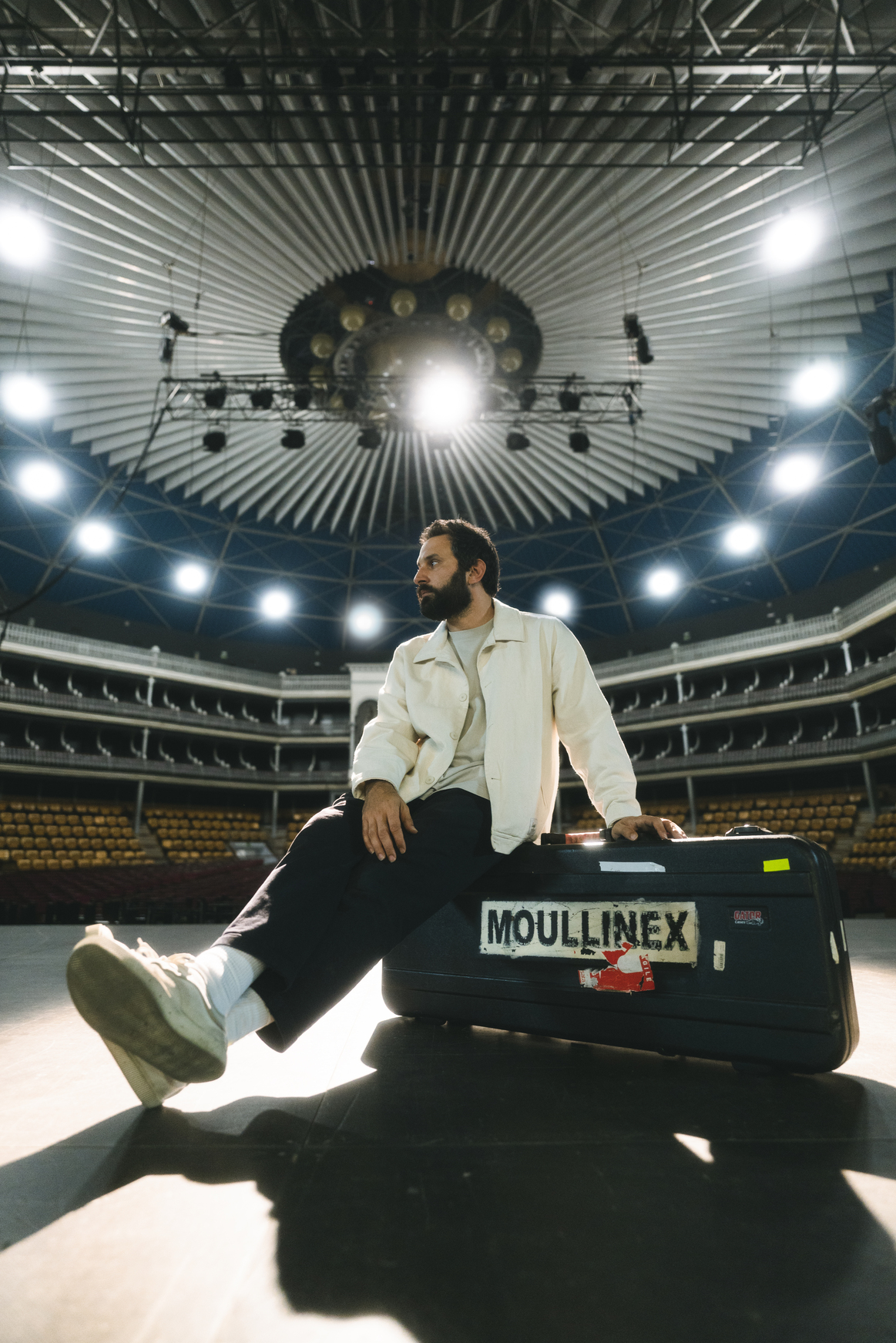
Il prossimo 28 ottobre 2022 rilascerai il tuo nuovo EP, “A Fistful of Stars” per Crosstown Rebels. Penso che questo lavoro includa la maggior parte dei tuoi tratti artistici: la parte elettronica e melodica e l’approccio più dance. Ti andrebbe di parlarci di alcuni dettagli, sensazioni che hai provato producendo questo nuovo EP? Qual è stata l’idea alla base?
Ho lavorato a lungo su due tracce dell’EP, la title track e “Atacama Skies”. Mi sono ispirato all’astronomia, che per me è sempre stato un mezzo per sognare in grande in spazio e tempo. Per questo ci ho messo del tempo a sviluppare le loro narrative in modo che questi elementi fossero presenti. “JFC” invece è il contrasto rispetto a queste due: immediata sia nella produzione che nelle sensazioni.
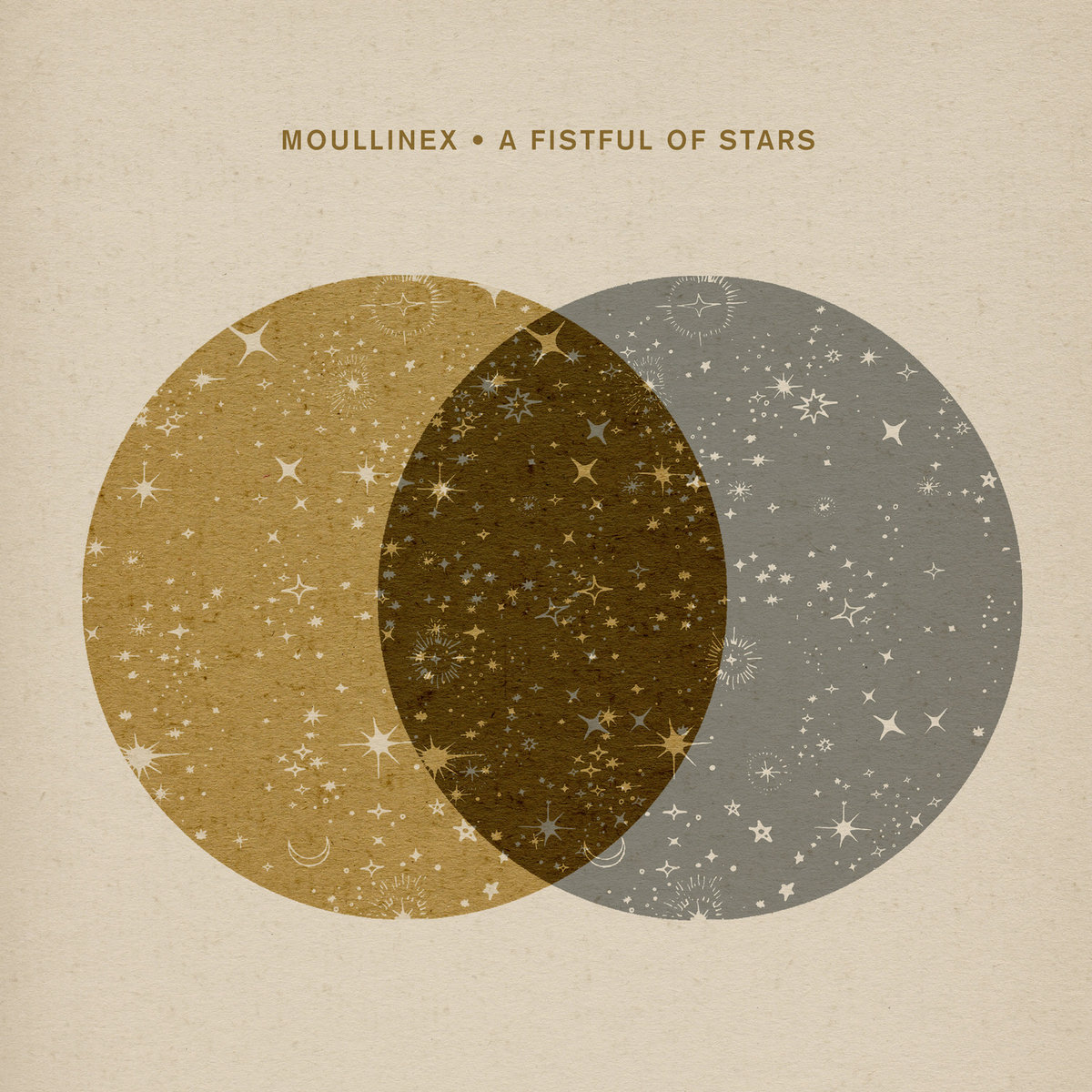
Ci parleresti della tua strumentazione da studio?
Per la produzione di “Fistful of Stars” ho utilizzato estensivamente una drum machine Soma Pulsar 23, un synth Roland SH1000 e tanti samples di piano e orchestra. La scelta della strumentazione è determinante per quello che faccio, pertanto provo sempre a lavorare con una palette limitata di strumenti per poi dare coerenza e identità a quello che creo.
Ci sono progetti in corso o che inizierai a breve dei quali vuoi parlarci?
In questo momento sto preparando il debutto per un live show con GPU Panic, un altro importante collaboratore. Nello spettacolo suoneremo tante tracce unreleased, quindi sarà un’occasione importante per testare i nostri progetti in corso di fronte a un pubblico dal vivo.
Grazie per essere stato con noi! A presto.
Grazie a voi! Luis.
ENGLISH VERSION
Moullinex, aka Luis Clara Gomes is a DJ, musician and producer born in Lisbon. His works and sounds are characterized by the apparent convergence of distant contrasts: joy and pain, light and darkness, instrospection and dance.
He’s releasing a new EP for Crosstown Rebels with the title “A Fistful of Stars” that you can access and buy via this link. We’ve had the chance to talk with him and deep dive with his musical vision starting from the beginnings, his first project the birth of Discodrama until the release of the latest EP taking inspiration from the astronomy as a means to dream through space and time.
Hi Moullinex, welcome to Parkett! How are you doing?
Hey! I’m doing great, thanks! Happy to be doing this.
Let’s begin with basics. What has been your trigger to start a musical journey and, in that sense, what is your first musical memory?
My first musical memory is from a very young age – my parents were involved in a cultural association in a small town next to where I was born, and we’d drive there every weekend. I remember watching plays, concerts, rehearsals since I was a baby. I didn’t really have a trigger moment as music had always been around me, and since I had a very curious nature, me attempting to tinker with music was kind of natural. I wasn’t good at any particular instrument, so somehow the computer became the best medium to create something.
You come from Lisbon, Portugal. Portuguese musical heritage is wide but deep. We can easily think about “Fado”. How much “Fado” is in your soul then in your music?
Most Fado I like is instrumental or “impure” in the sense that it’s mixed with other music cultures. In its origin, Fado is the result of many different influences, but in the XX century it was crystallized into a set of rules by the fascist regime, in order to package and control it. Only in recent years a generation of new artists is shaping a beautiful moment for Fado, with artists like Fado Bicha, Conan Osiris, Gisela João (and her remix by Xinobi!) and many more contributing to it. I wouldn’t say Fado is directly present in what I do, but its inherent melancholia is definitely there. The light and the dark, the joy and the pain.
Your music is a perfect balance between dance and introspection. How hard is to balance these two (apparently) opposite qualities?
Thank you, that’s a nice compliment. I think dance music is the perfect medium for both introspection and communication – it’s a great social equalizer too, and beautiful way to communicate without words. I like the immediacy of a repeating drum pattern – sometimes it’s impossible to escape its pull, you can’t help but dance along to it. On top of that dance you get to add a “while I have you, let me take you on a journey” kind of layer, so I love that contrast between simple and complex.
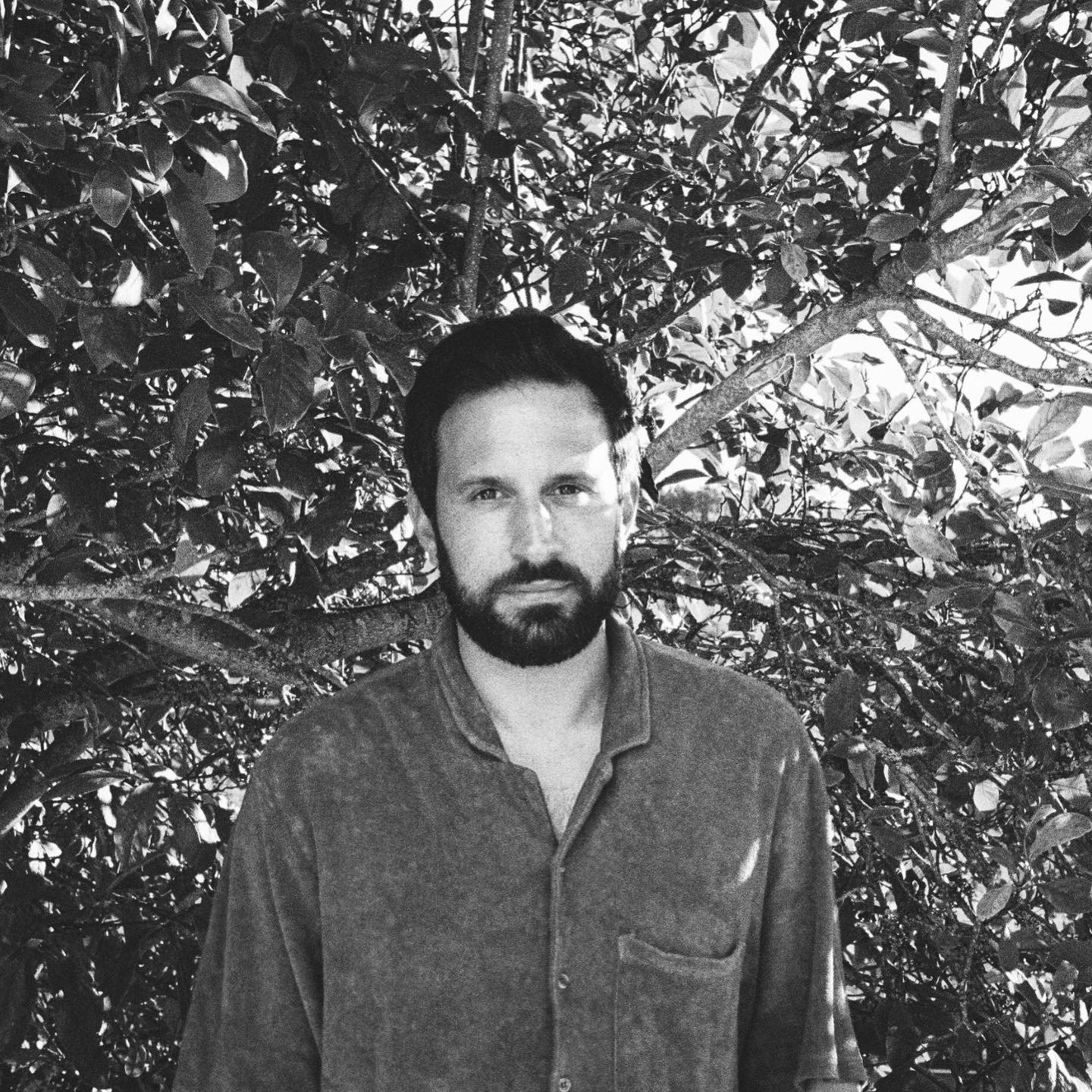
Let’s talk a bit about your long time collaboration with Xinobi, another Portuguese artist. What is the contribute from both in your musical and production journey?
Xinobi’s importance to what I do is huge; Over the 15+ years we’ve collaborated together, we’ve done hundreds of back-to-back DJ sets, created Discotexas (a label and an artist collective), put out hundreds of records, and been the biggest fans and critics of each other. He’s there when my imposter syndrome kicks in, and also there when I’m obsessing over a kick drum on a track for weeks and it’s time to let it go. I think we alternate roles in each other’s life – and it’s a true privilege to find such a figure so early on in your music journey – who knows if I’d still be making music if it weren’t for him.
You had the opportunity to remix tracks by artists like Cut Copy, Sebastian Tellier or Röyksopp & Robyn. What is the funniest and most rewarding remix (amongst these) that you’ve worked on?
The remix for Cut Copy was a turning point for me. It was initially rejected by the label, but I got permission to send it to a blog, and it really took off organically, which in turn made the label approve it and release it in the end. I love how my first big official remix got rejected, and how the internet gave me a second chance.
Let’s come to more recent times. I have seen that you have toured quite a lot last summer: which has been the most breathtaking place you have performed so far?
This was a beautiful summer, after a long dark age where we couldn’t experience live music. I can’t pick a favorite place in my past travels, but definitely Moga Festival in Essaouira, Morocco, where I got to do a short residence with local Gnawa musicians, and perform it live at sunset at the festival, was this summer’s highlight.
Also, Discodrama at Coliseu de Lisbona has been a huge gig. How has been to turn the most iconic room in Lisbon into a dancefloor? What made you proud the most during the organization of this event?
That’s an extremely important venue to me, as I saw so many amazing shows there over the years. The bar was really high when I set out to do something there – so in my mind that event needed to feel like a home, and hopefully embody the personality of my music. So it had to be a dancefloor: a continuous 6 hour experience, two completely different live shows, each with its own set design and instrumentation, followed by DJ sets by Anna Prior, Justin Strauss and Xinobi. It did feel like we transformed the venue for those six hours.
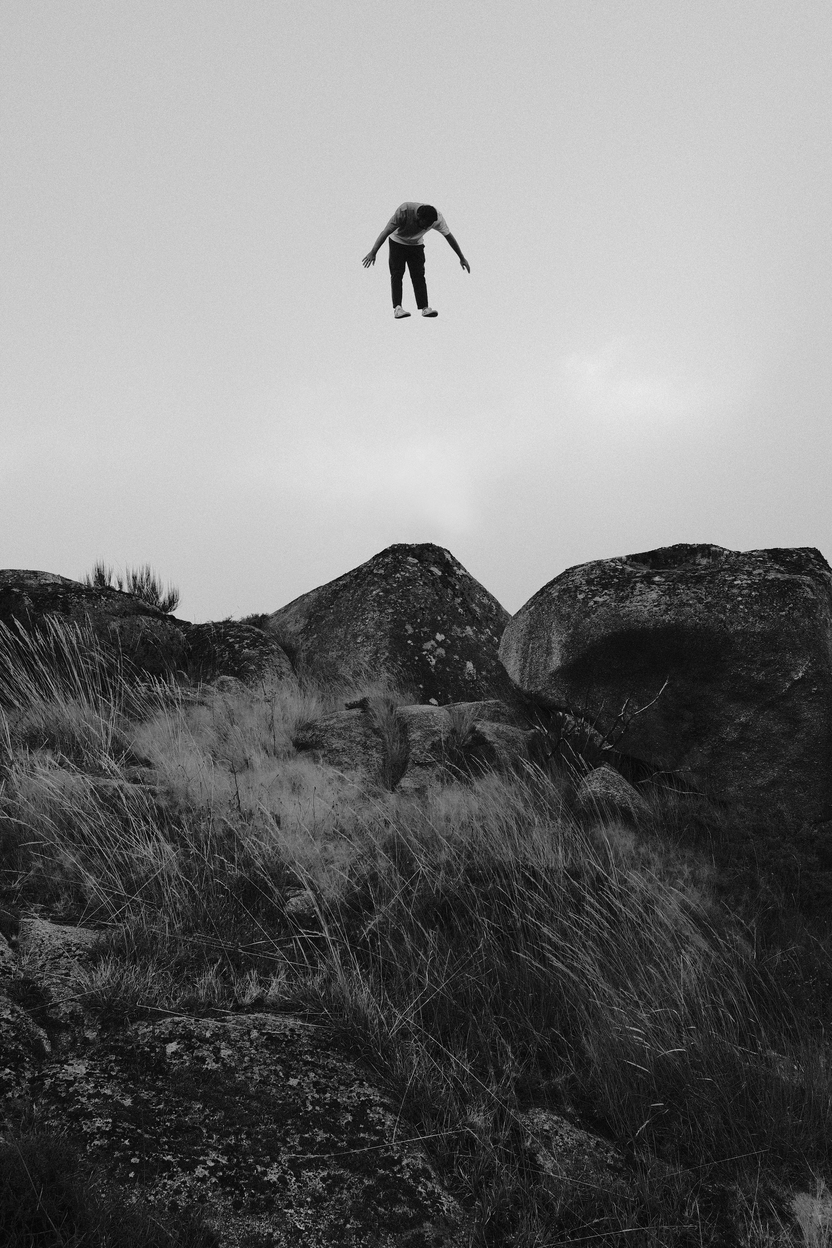
The 28th October 2022, your new EP “A Fistful of Starts” will be released for Crosstown Rebels. I feel that this work encompasses most of your traits: the electronic and melodic soul and the club oriented approach. Could you please share with us some details or feelings while producing this new EP? What is the idea behind it?
I’ve been working on two of these songs, the title track and “Atacama Skies” for quite a while now. They are very much inspired by astronomy, which to me has always been a great way to dream big, think about scale, space and time. So they need to take their time to develop their narratives, and this idea of scale had to be present in its textures and mood. “JFC” is the contrast to the other two: immediate, both in making it and in how it feels.

Could you please share with us your production gear that supports you to make real your music ideas?
For making this EP I relied heavily on a Soma Pulsar 23 drum machine, a Roland SH1000 synth, and lots of piano and orchestral samples. The gear always sets the tone of what I’m about to do, so I try to work with a limited palette of instruments, and hopefully achieve something coherent and with an identity.
Do you have some ongoing or incoming projects you would like to share with us?
Right now I’m preparing the debut of a duo live show with GPU Panic, another important collaborator of mine. That includes playing a lot of released and unreleased material, so it’s a great opportunity to “road test” work in progress in front of a live audience.
